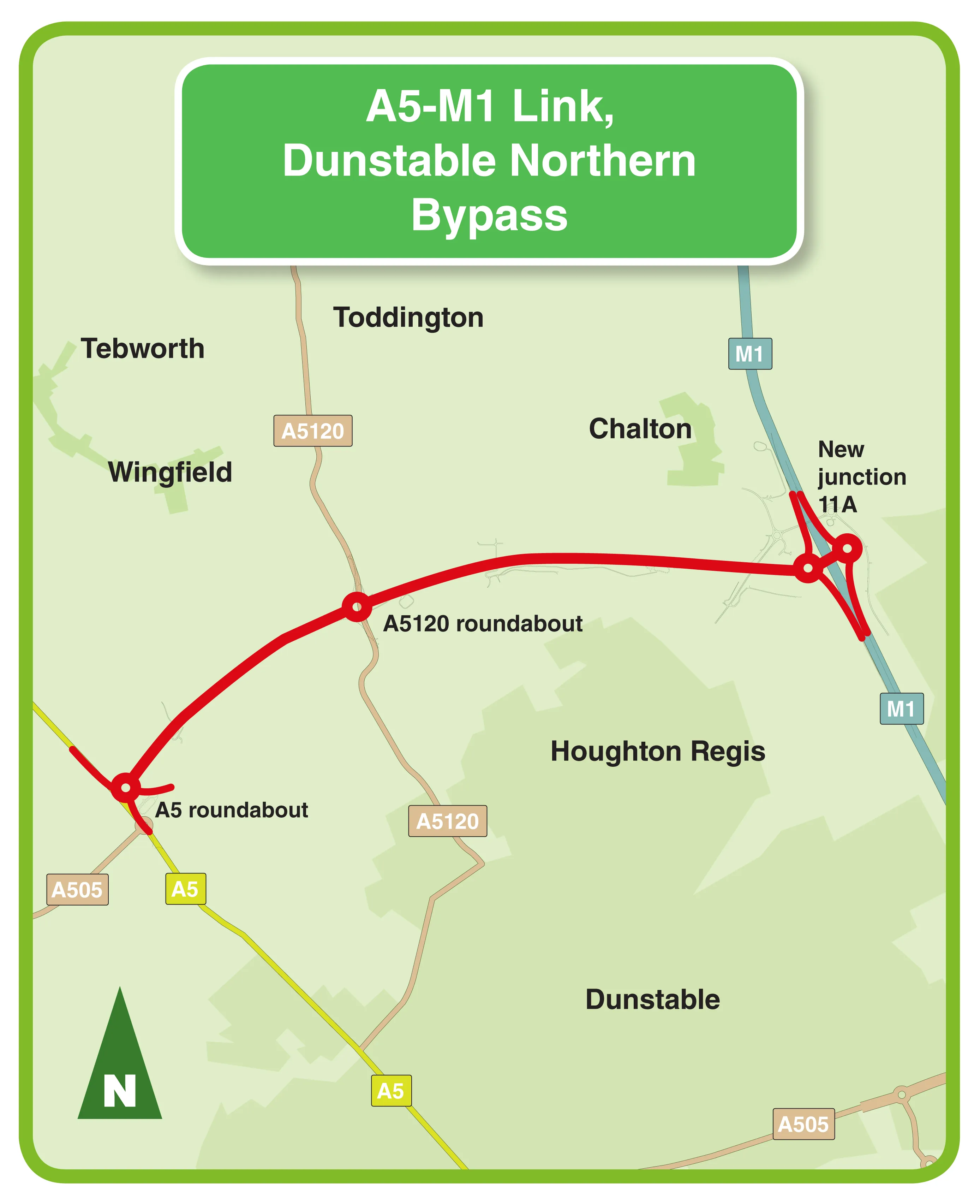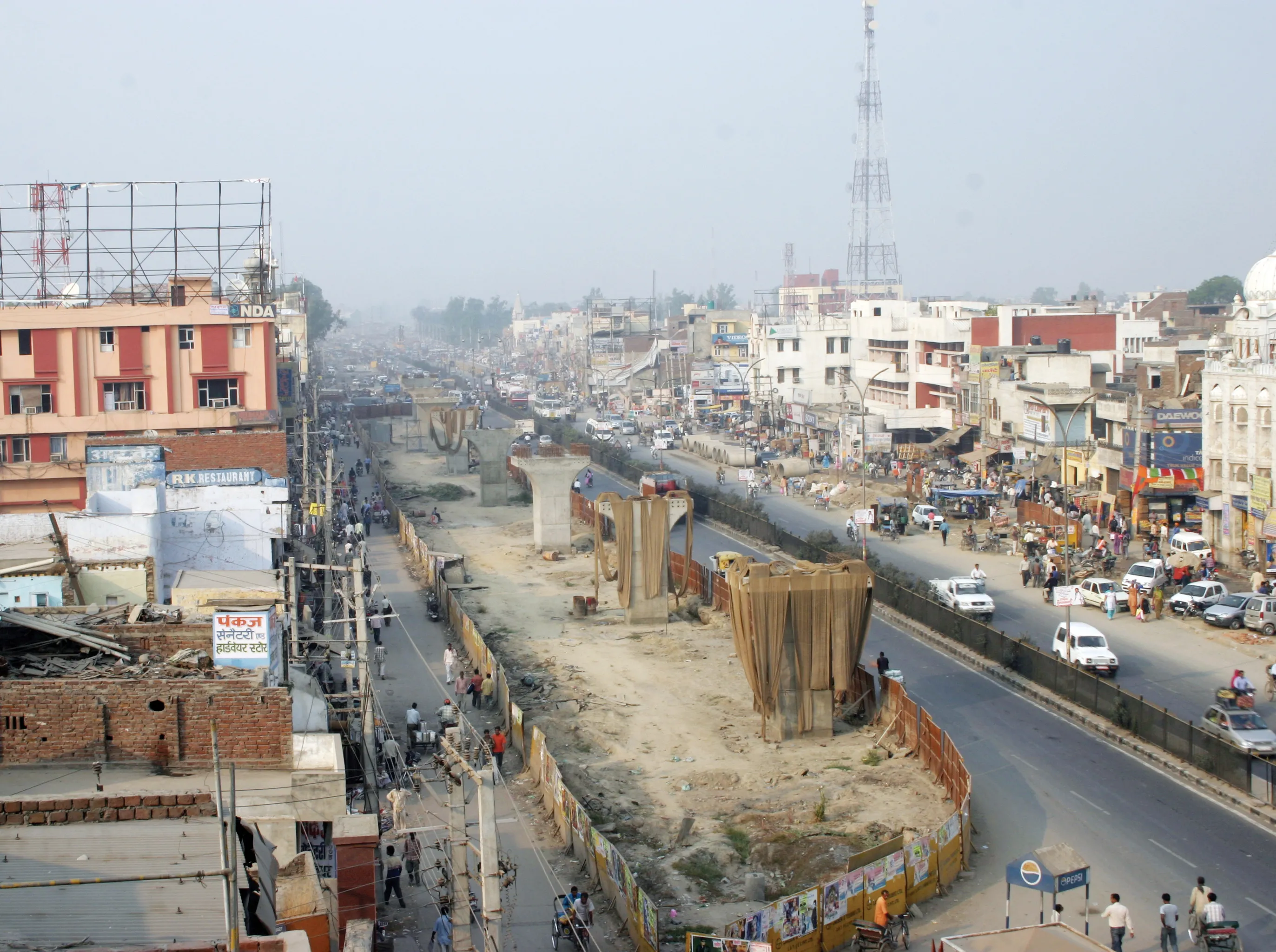Construction of a new junction on the M1 near Dunstable in Bedfordshire is starting in the UK. The new junction, junction 11A, is located just to the south of Toddington services and forms part of a new €225 million link road between the A5 and the M1 that will help to unlock growth and reduce congestion in the area. Work on the link road began in March.
June 18, 2015
Read time: 2 mins

Construction of a new junction on the M1 near Dunstable in Bedfordshire is starting in the UK. The new junction, junction 11A, is located just to the south of Toddington services and forms part of a new €225 million link road between the A5 and the M1 that will help to unlock growth and reduce congestion in the area. Work on the link road began in March.
8100 Highways England project manager Karen Green said, “This junction is a vital part of this significant road improvement. The new link road will be a major new bypass for Dunstable, reducing congestion and improving safety on the A5, and reducing pressure on the A5 through Dunstable town centre. Work on the project is progressing well.
“To build the junction we will need roadworks on the M1 between junctions 11 and 12, but we are working closely with our contractor and local partners to ensure disruption to road users during this work is kept to a minimum.”
Roads minister Andrew Jones said, “As part of our long-term economic plan we’re committed to the biggest investment in roads in a generation.
“It’s vital we use our transport infrastructure to create jobs and make it easier for people to see their family and friends. The £2 billion (€2.8 billion) we are investing in the East of England will ease congestion and make journeys quicker across the region.”
Once completed in spring 2017, the link road, a new 4.5km dual carriageway, will improve the east-west connection between the A5 and M1. While the new junction is being built, lane 3 on the M1 will be closed between junctions 11 and 12 in both directions. Three lanes will remain open, with traffic running on the hard shoulder and lanes 1 and 2. The roadworks, including safety barriers, signs, CCTV and average speed cameras, will stay in place throughout the junction construction work, which will be carried out in phases and should be finished in spring 2017 as the scheme nears completion.
“To build the junction we will need roadworks on the M1 between junctions 11 and 12, but we are working closely with our contractor and local partners to ensure disruption to road users during this work is kept to a minimum.”
Roads minister Andrew Jones said, “As part of our long-term economic plan we’re committed to the biggest investment in roads in a generation.
“It’s vital we use our transport infrastructure to create jobs and make it easier for people to see their family and friends. The £2 billion (€2.8 billion) we are investing in the East of England will ease congestion and make journeys quicker across the region.”
Once completed in spring 2017, the link road, a new 4.5km dual carriageway, will improve the east-west connection between the A5 and M1. While the new junction is being built, lane 3 on the M1 will be closed between junctions 11 and 12 in both directions. Three lanes will remain open, with traffic running on the hard shoulder and lanes 1 and 2. The roadworks, including safety barriers, signs, CCTV and average speed cameras, will stay in place throughout the junction construction work, which will be carried out in phases and should be finished in spring 2017 as the scheme nears completion.








